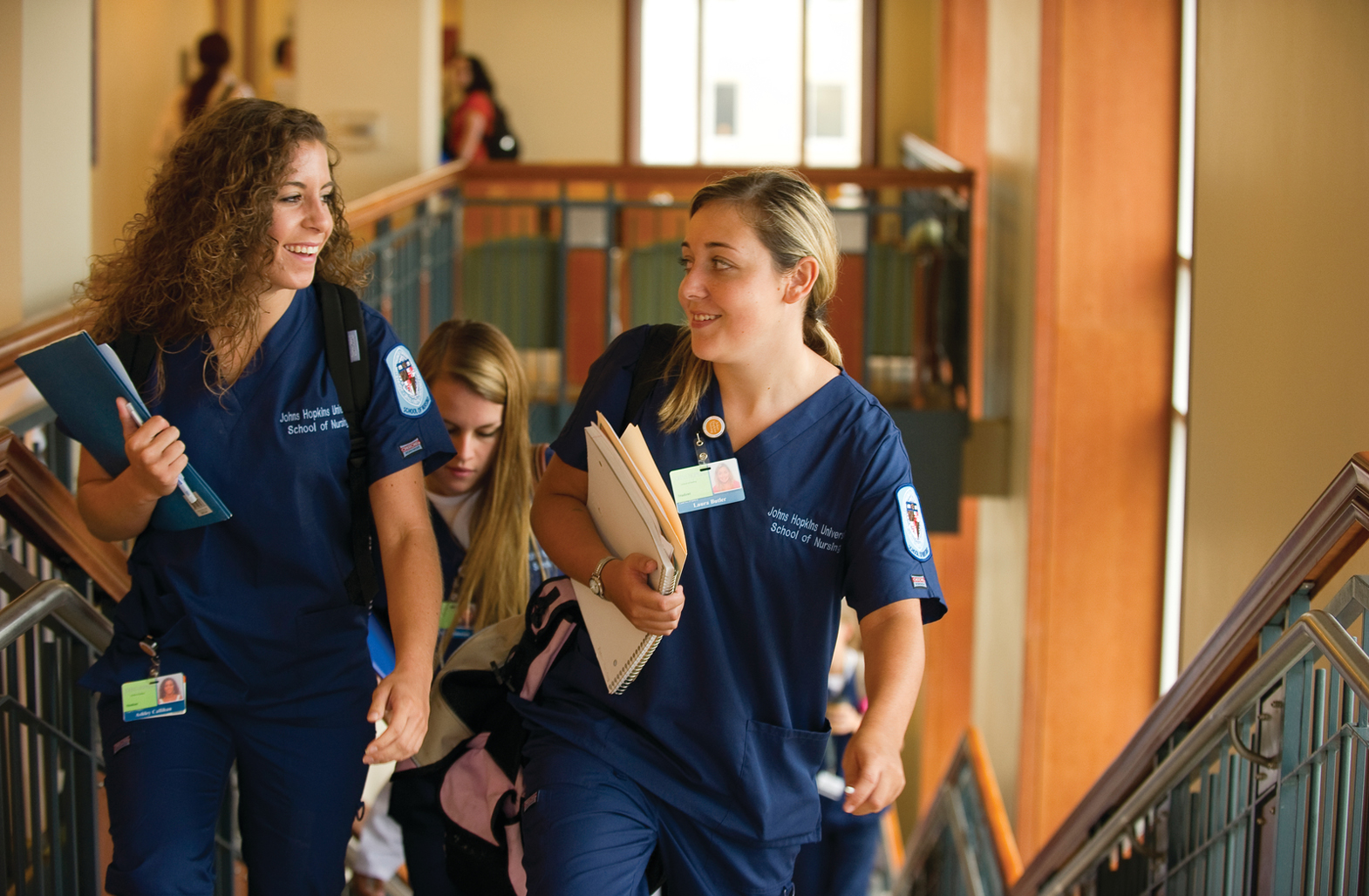Every Johns Hopkins School of Nursing (JHSON) student who took the American Academy of Nurse Practitioners Family Nurse Practitioner (FNP) and Adult-Gerontology Nurse Practitioner (AGNP) primary care certification exams passed. Hopkins scored 70 points above the national average in the FNP exam and 46 points above the average in the AGNP exam.
On the heels of a newly-passed law in Maryland that gives nurse practitioners (NP) full practice authority, Deborah Finnell, DNS, PMHNP-BC, CARN-AP, FAAN, Associate Professor and Director of the Master’s and DNP Programs, says this kind of achievement goes beyond the 100 percent pass rate.
“We are so proud of our students. Their certification demonstrates not just their proficiency in advanced nursing knowledge, but will help open doors for them as the nurse practitioner role becomes even more essential to provide access to care and fill provider gaps.”
NPs—registered nurses with master’s or doctoral degrees whose scope of practice ranges from primary to more specialized care—serve as nurse leaders who can provide care autonomously or within an interprofessional setting. In addition to the adult-gerontology primary care and family NPspecialties, Hopkins provides tracks in adult-gerontology acute care and pediatric primary care that center on equipping nurses for clinical decision making, health promotion, disease prevention, and assessing, diagnosing, and managing patients in a variety of settings. All of the school’s NP tracks have been ranked in the top 10 specialty programs among accredited nursing school graduate programs by U.S. News & World Report.
“These scores are a benefit to the entire healthcare system and give credence to our students’ dedication to delivering the best possible care,” says Dean Patricia Davidson, PhD, MEd, RN, FAAN. “As new nurses, they have taken an important step in positioning themselves as leaders who are able to practice at the top of their license.”
***
Located in Baltimore, the Johns Hopkins School of Nursing is a globally-recognized leader in nursing education, research and practice and ranks #2 nationally among graduate schools of nursing and #6 for online programs, according to U.S. News & World Report. In addition, the school was named the “Most Innovative Nursing Graduate Program in the U.S.” by Best Master of Science in Nursing Degrees, and ranks #1 among nursing schools for Federal Research Grants and National Institutes of Health (NIH) funding. For more information, visit www.nursing.jhu.edu.
Media Inquiries
Danielle Kress
410-955-2840
